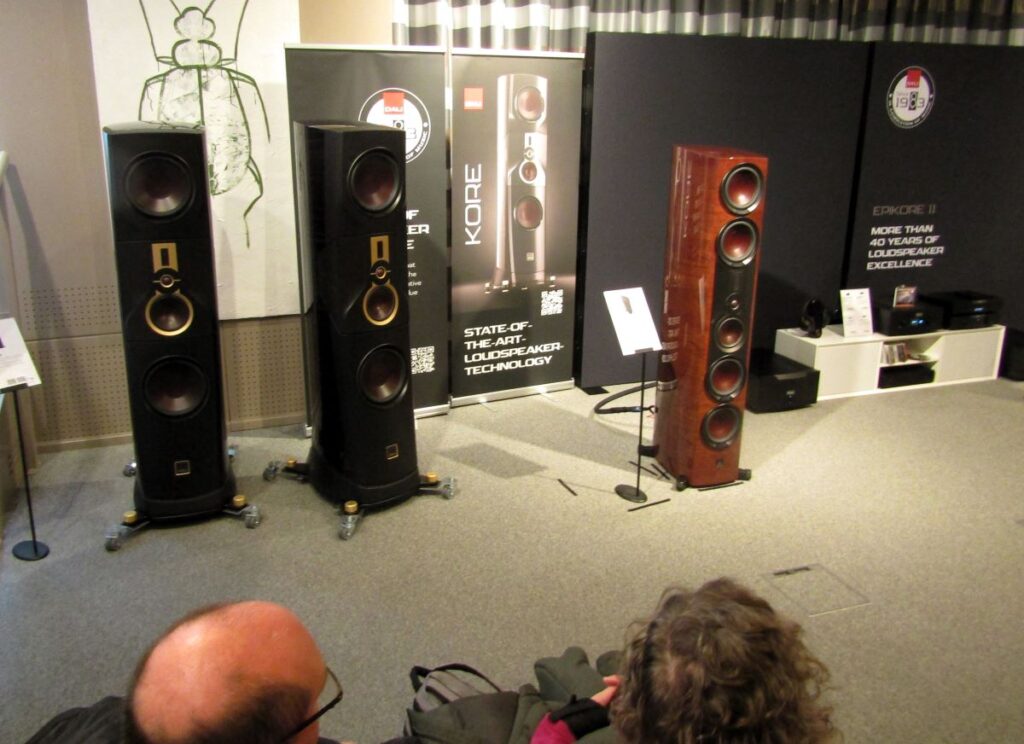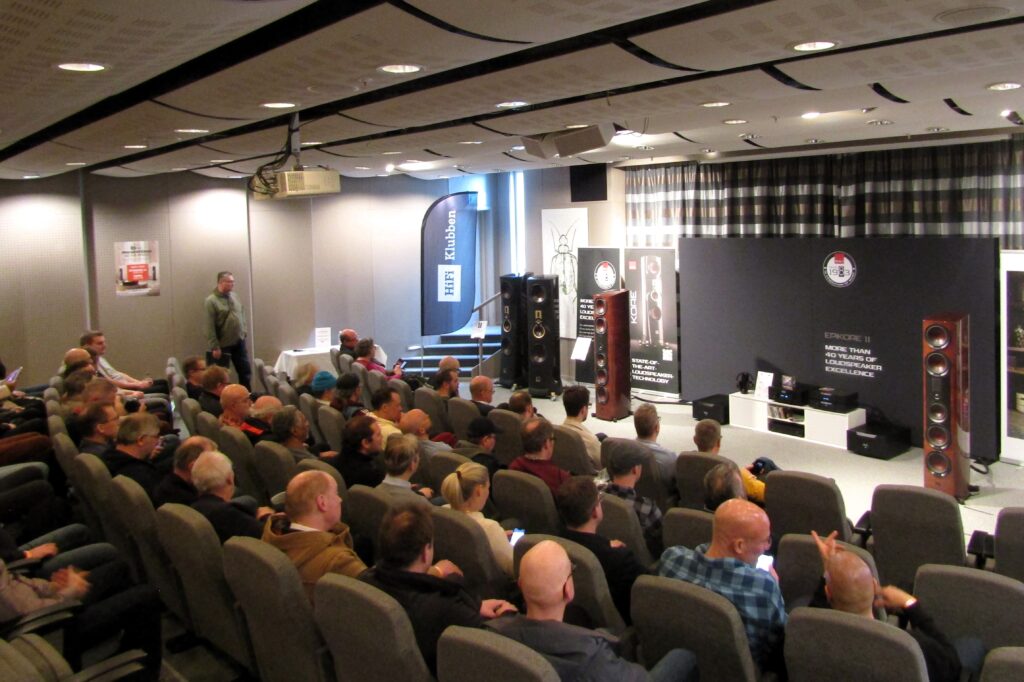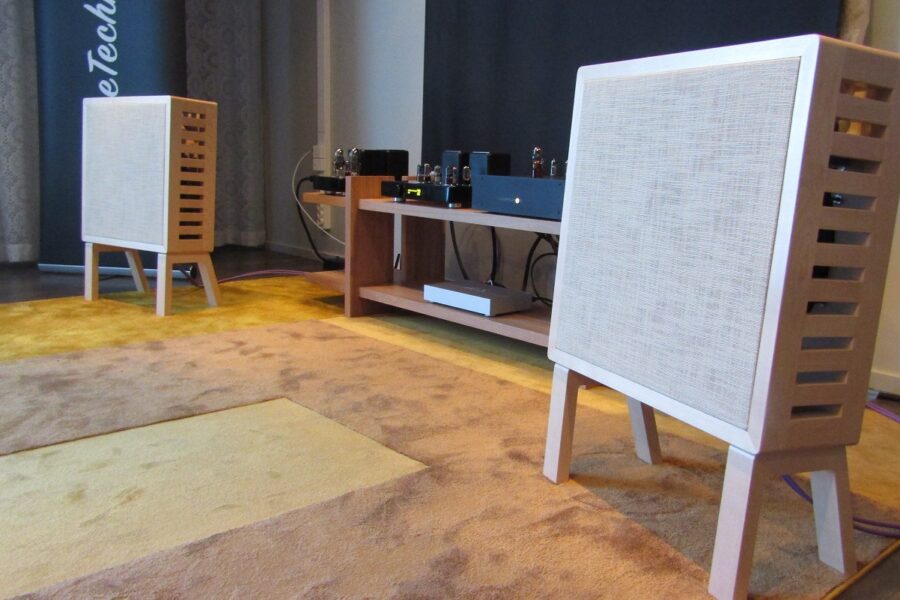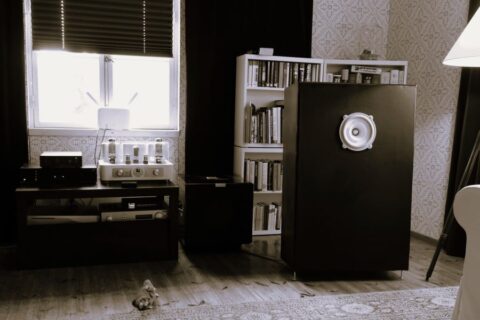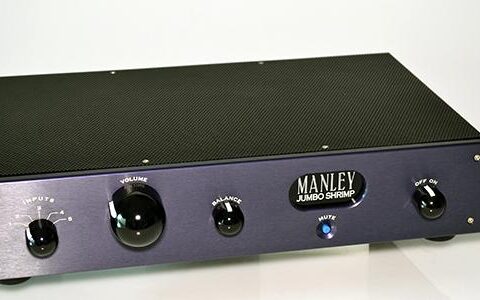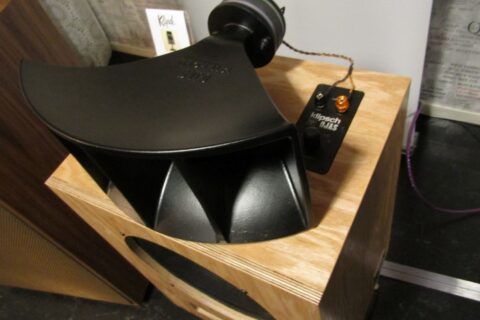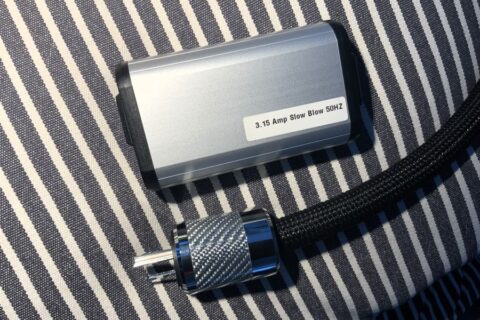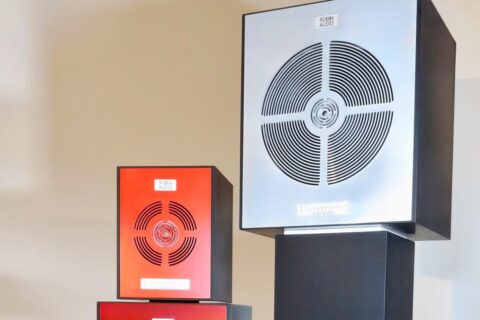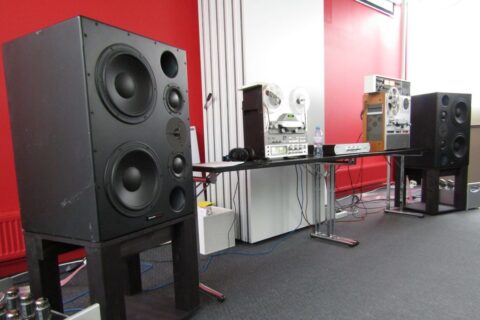High-end Mässän 2024 was held in Stockholm 17-18 Feb, but not in City’s Sheraton hotel, which for years served as the main venue for the fair, but the Klara Konferens & Happynings Conference Center at Klarabergsviadukten 90, right next to the main railway station. The same space previously served as an extension of the Sheraton and, thanks to its quality food/beverage service, also as a popular socializing place for visitors.
When times were better, both Sheraton and Klara (formerly called Lundqvist & Lindqvist/Kapitel 8) were fully booked. In recent years, there’s been more free space at the Conference Center. The fact that the entire fair now fit into the Conference Center shows that the old days are still waiting to return. About a dozen exhibitors showed up, plus some other with a stand in the corridor. Some major importers, such as Hifi Consult and Audio Concept, had left out or downshifted, such as Audionord, who this time had but a small Devialet system. But no worry. Visitors were in good mood. The stress and rush of big fairs was absent. Time to sit down and reflect on what one had just heard, and to look for concepts to describe and better understand the nature of sound.
This year the greatest innovation was the extended opening hours on Saturday, when it was time for Ladies Night: after 6 PM a free entry for women, avec or without, plus a glass of bubbly! Not a bad idea.
SOME RECORD PLAYERS
On the vinyl front, one of the best performances took place in the Stylus Audio room where the source was Vertere’s flagship RG-1 TT backed up by Brinkmann’s Edison Mk II RIAA phono stage. The demonstrator would have liked to play LPs of his favorite band, but found their sound miserable. So he played something else, and it sounded pretty good!
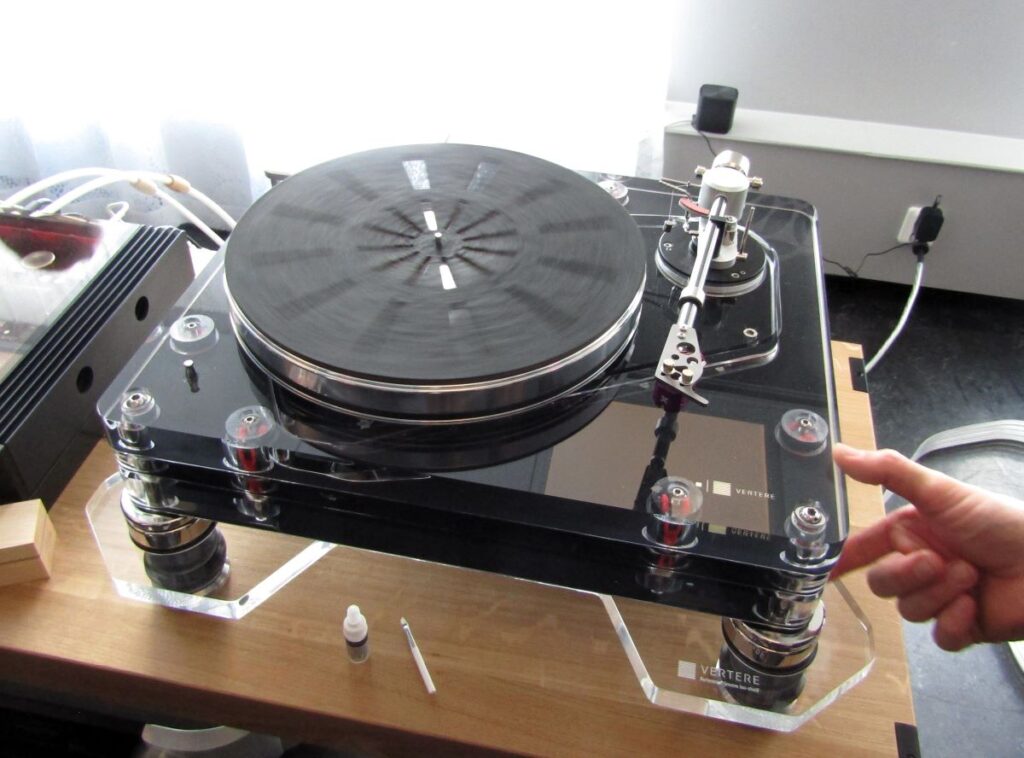
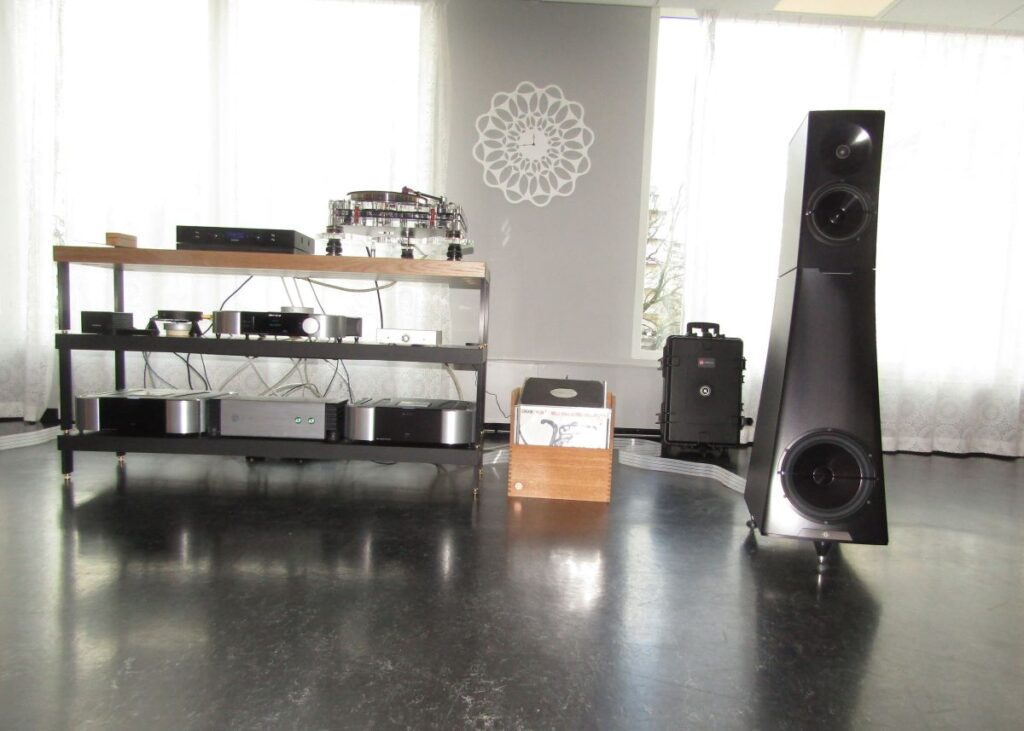
Equally convincing was Brinkmann’s Taurus direct-drive powered by Brinkmann’s Rönt II tube power supply. All amps were Soulnotes feeding YG’s Peaks Series top model, the 3-way Ascent hooked to Vertere’s cables. The sound was a tad more easy-going than with the bigger and more rigorous Vertere/YG combo.
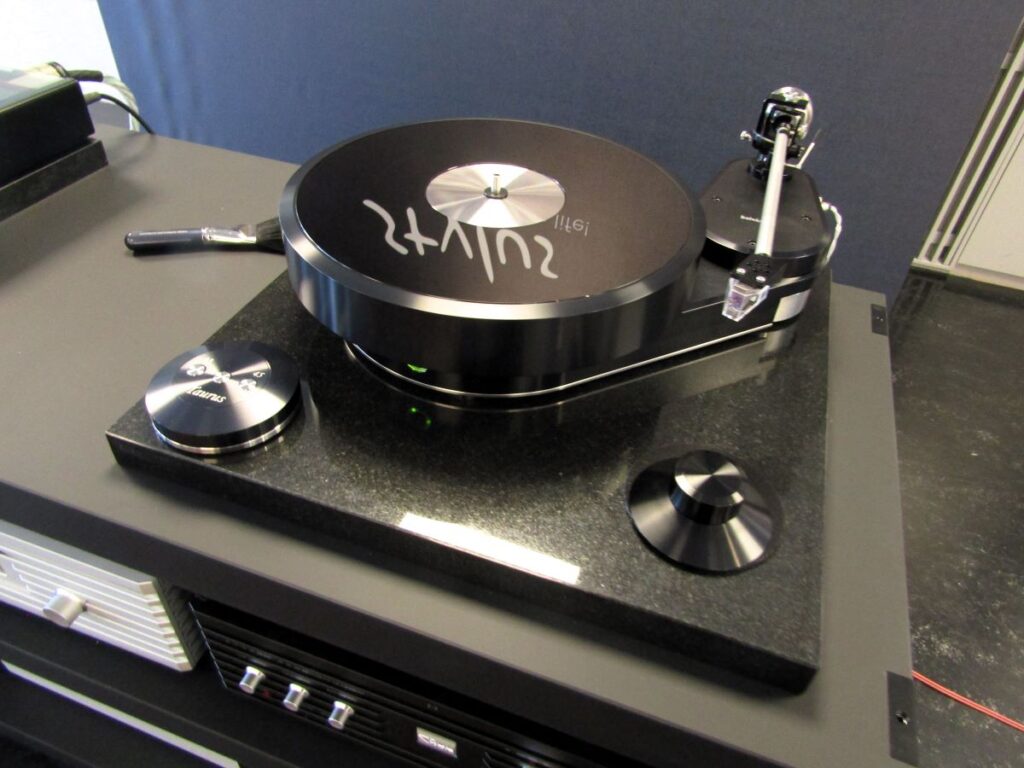
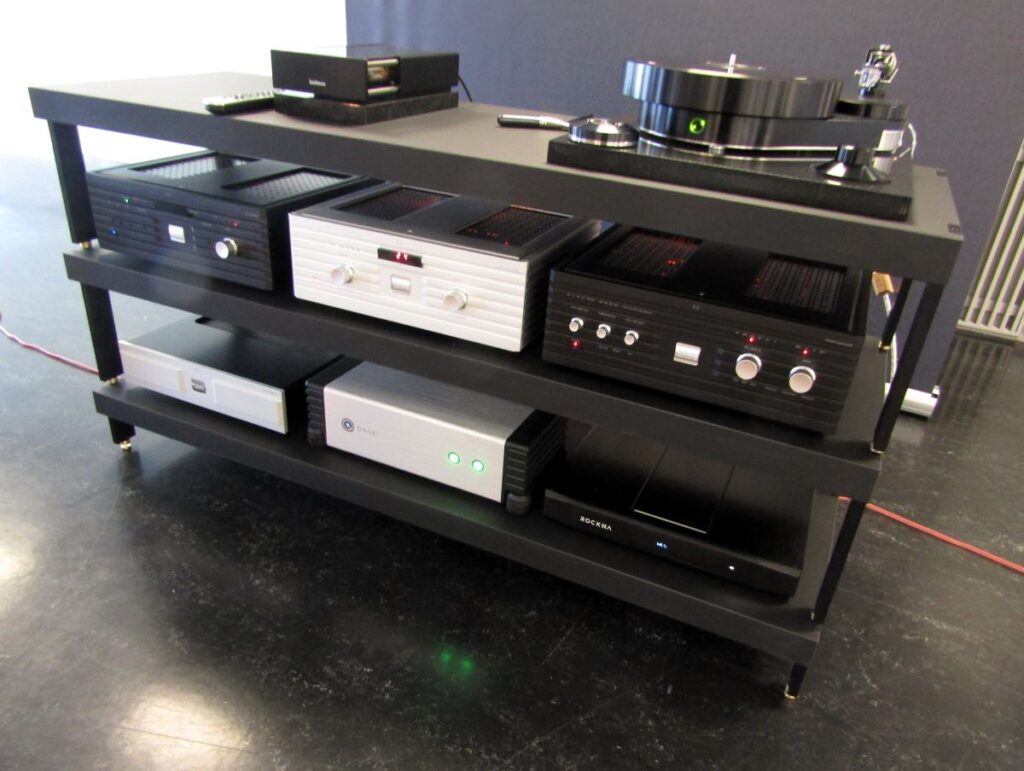
Perfect Sense had brought along TechDAS’s smallest and most affordable turntable, air-suspended Air Force V with a separate power supply unit. Of the two speakers in the room – Diptyque’s large DP-160 MKII dipoles, and Stenheim’s dynamic aluminum Two.Five-2 – the former, despite of a slightly rounded bass department, appeared to go better with the analog sound source, also with more rhythmic music. The Stenheims shined with the digital source: COS S10 Ethernet switch/Aurender N20 network player/Playback Designs MPD-8 dac, and classical music; for some reason the somewhat protruding treble bothered the ear less. This was one the rooms where I visited more than once just to enjoy the music.
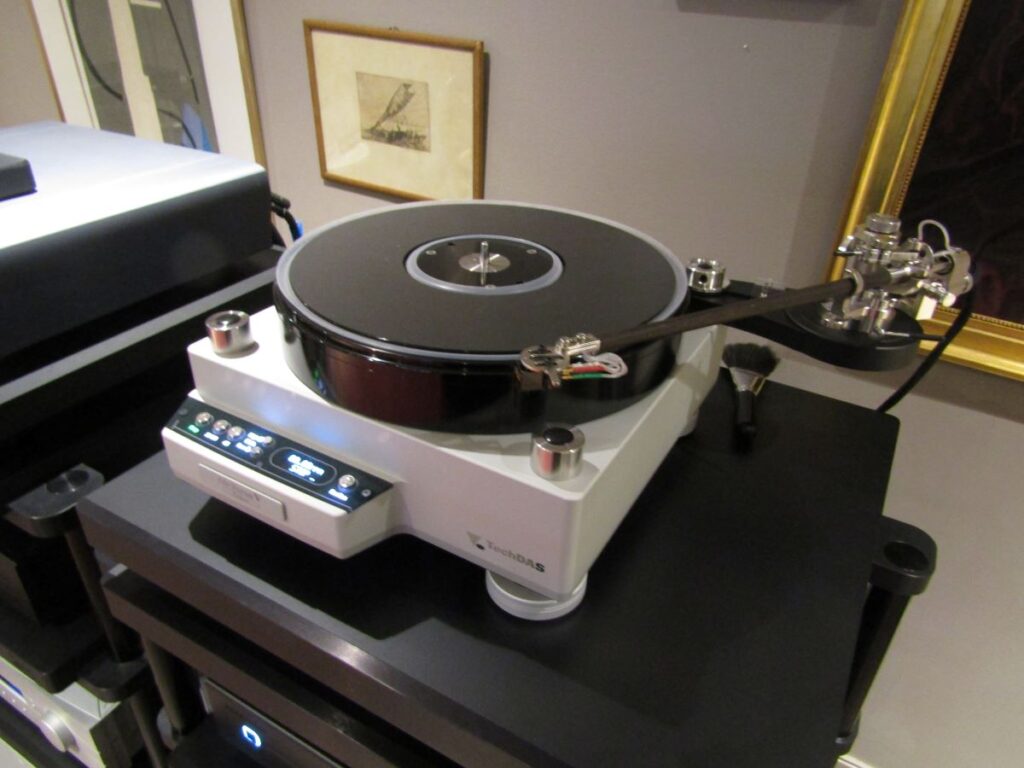
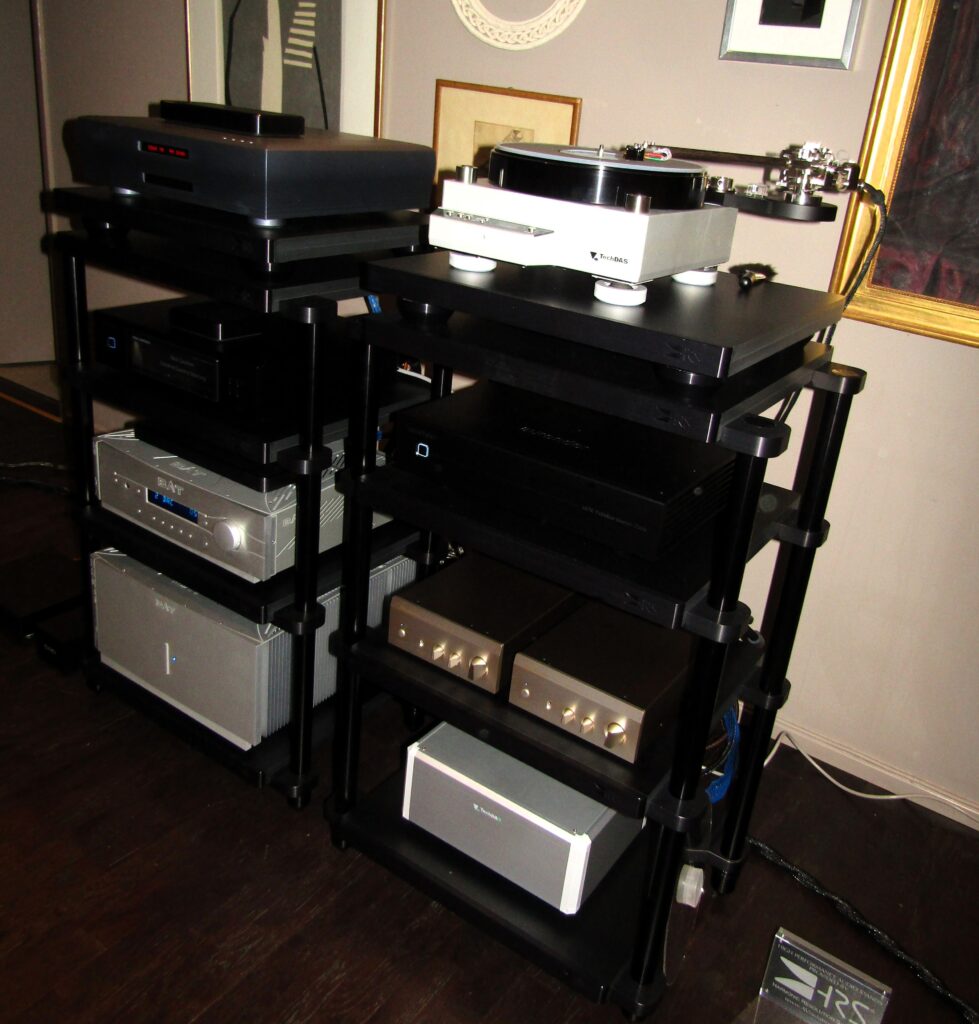
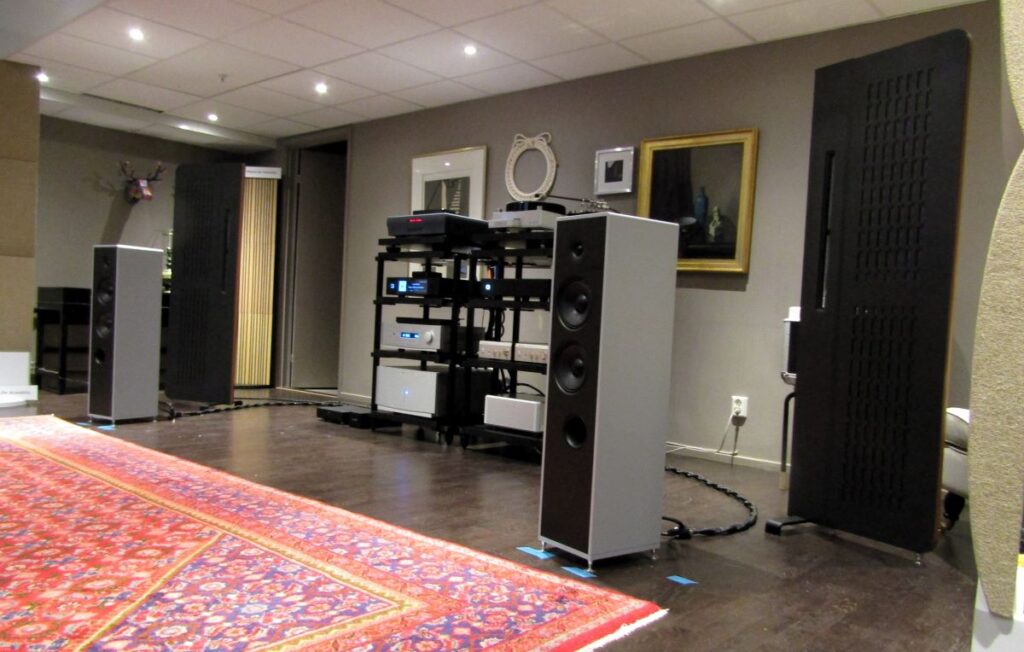
OTHER SUCCESSFUL ONES
Audio Note UK threw its familiar party by playing ‘low-fi’ music on a very hi-fi and sophisticated playback system. And why not, if it works. And it did. This room made the crowd smile; probably because of the slightly absurd situation, but also because it made many older men feel genuine punk/rock nostalgia.
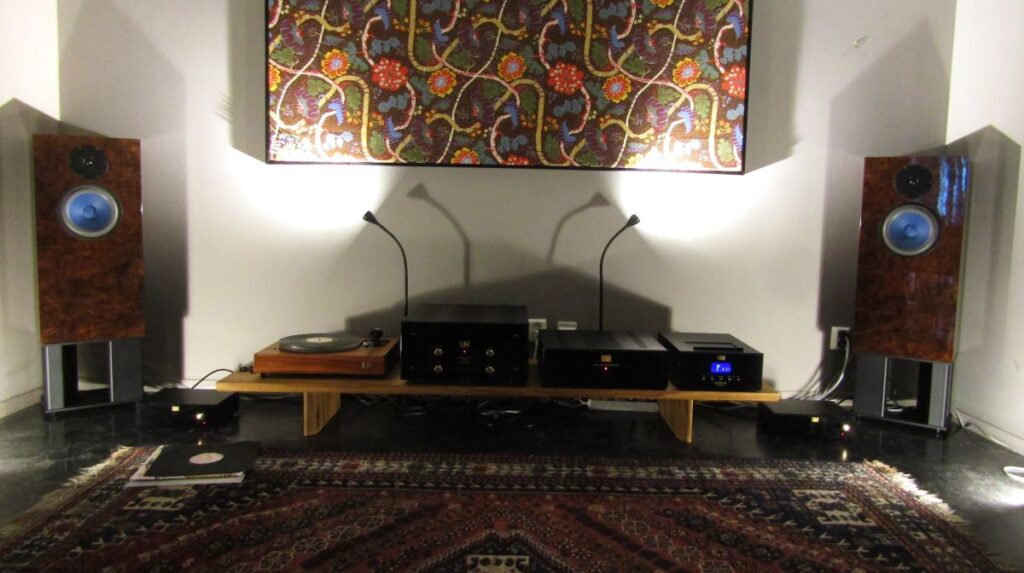
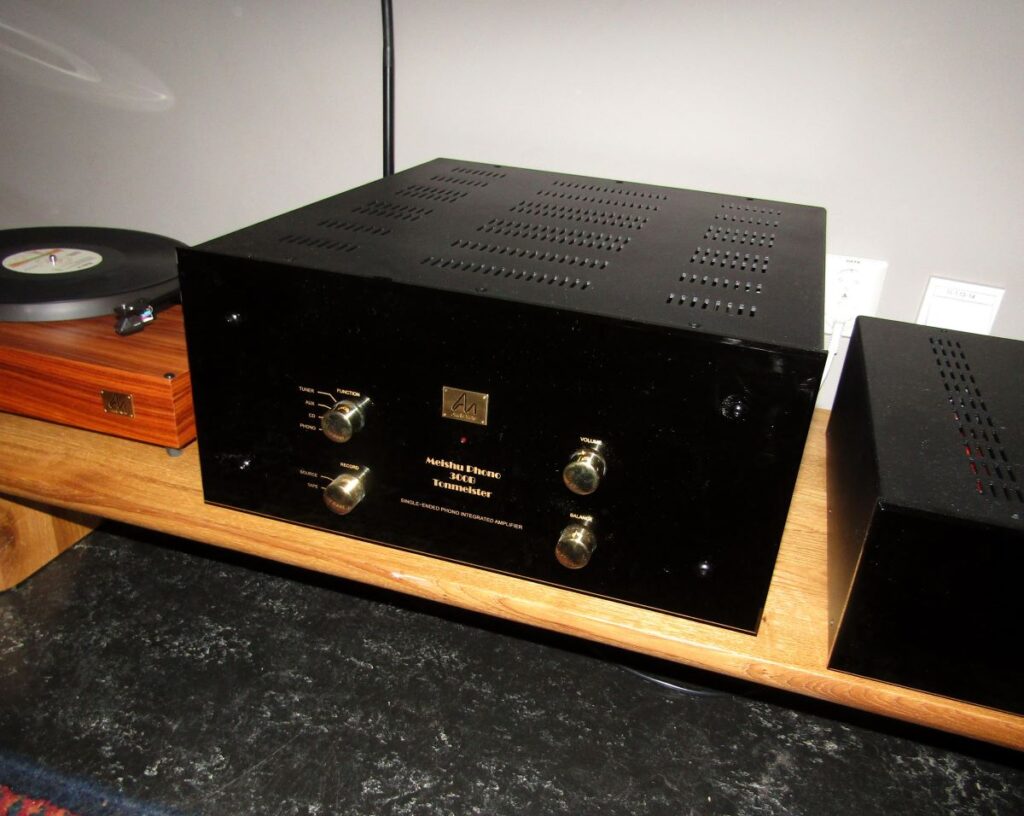
One of the undeniable showstoppers was PL Audio’s system consisting of the Monitor Audio’s most expensive Platinum Series 3G floorstander, electronics coming from dCS (the entry-level dCS LINA network player-dac with a separate master clock, but without a headphone amplifier), and the amplifier Pass Labs’ 250 watter Pass INT-250. With the right recording, and the seat in the middle, a truly captivating sound. Clean and distortion-free.
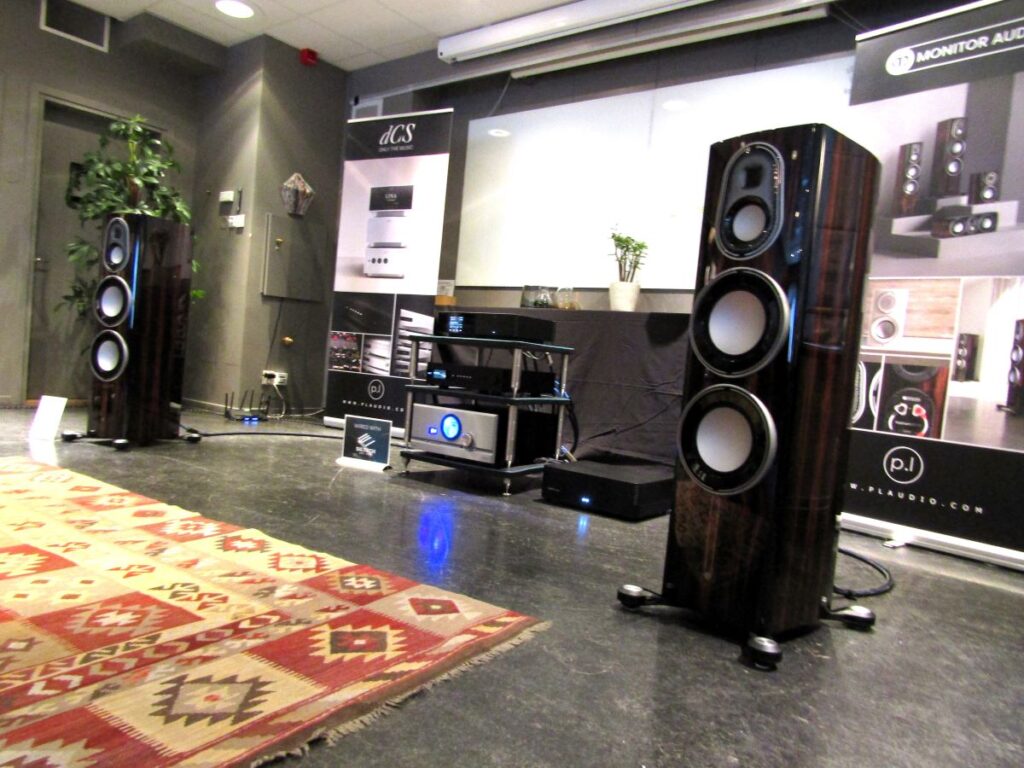
Perhaps the most thought-provoking room brought together two Swedish manufacturers. The one was the fusion of Oido Audio, founded by architect Gunnar Hildén, and the Swedish Soft collective, whose first public appearance took place on a loudspeaker (SC 05) inspired by Alvar Aalto’s furniture. The sound was technically not as technically polished as, for example, in PL Audio’s room, but all the more the music was reproduced with a big heart and sympathy.
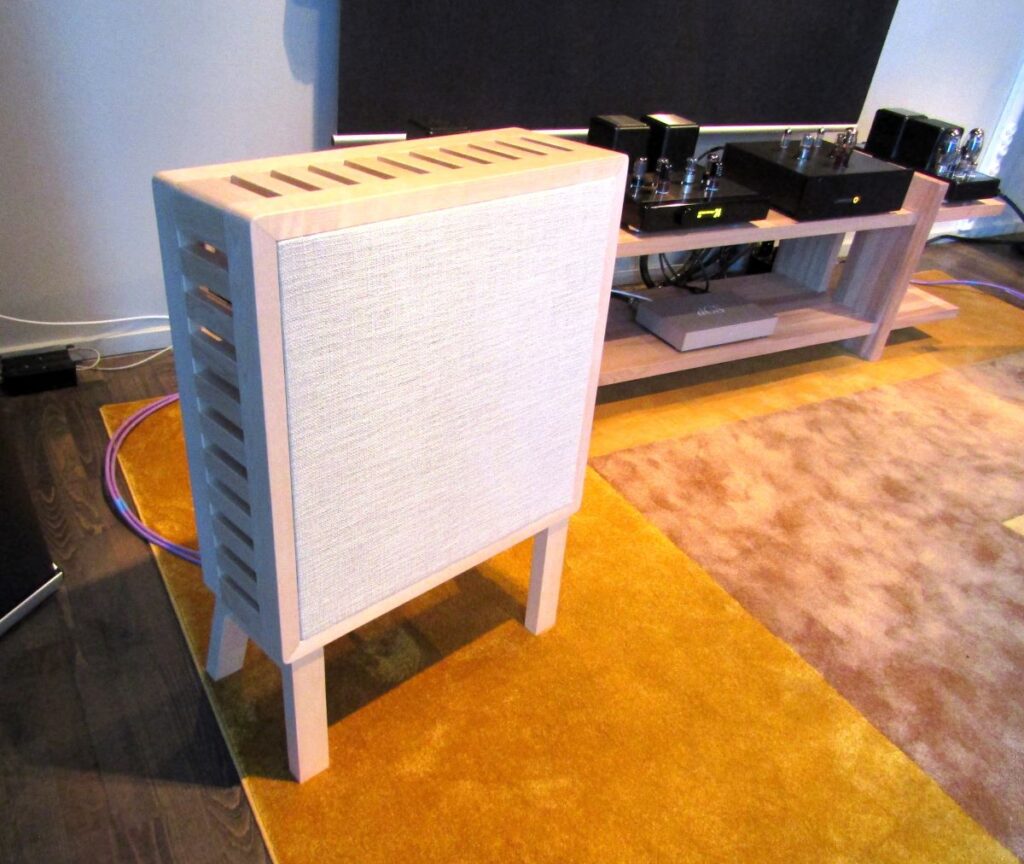
The sound of the SC 05 is said to benefit from the presence of tube amps, such as a 20-watt push-pull triode amplifier. As if out of the blue, such (almost) amp can be found in the product gallery of the Swedish tube amp specialist APS TubeTechnique. APS AirArt 60 mono blocks output through Lundahl’s power and output transformers, 30 watts in triode mode (60 W in ultra-linear).
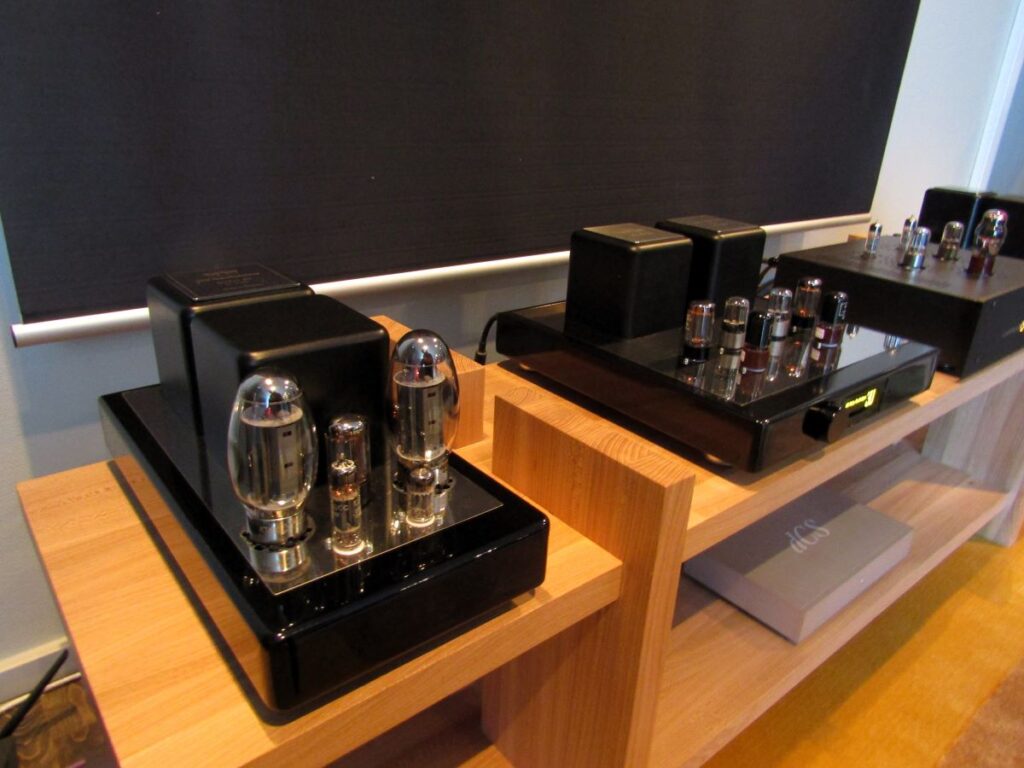
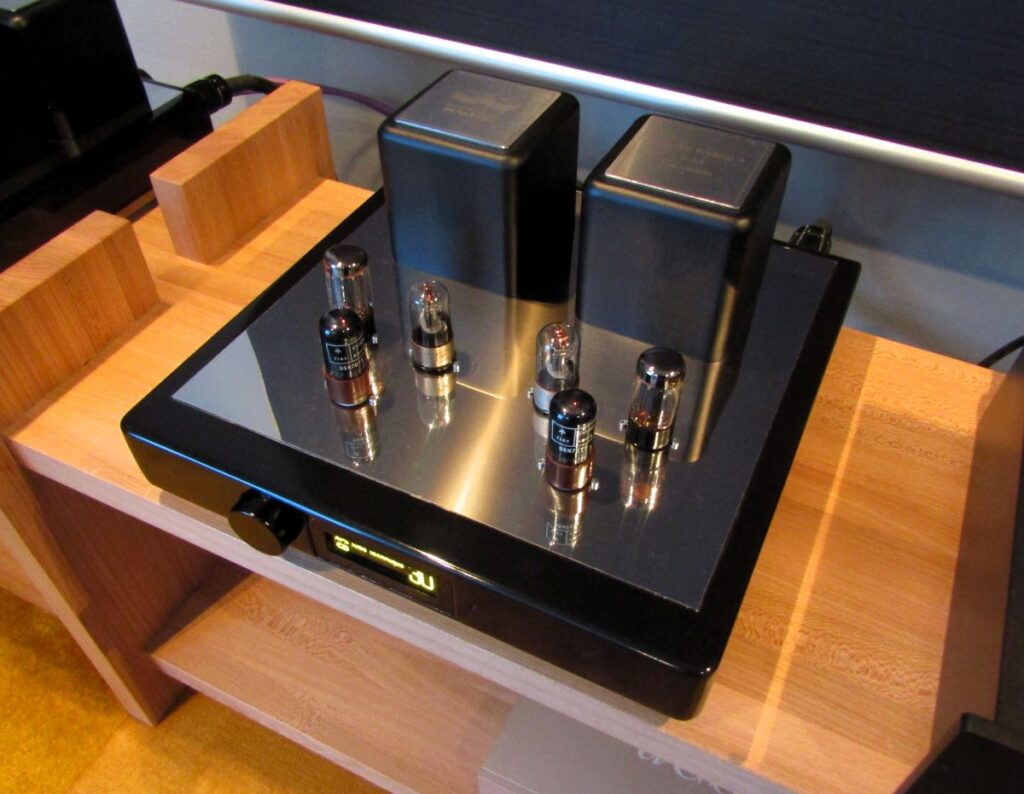
THE CURSE OF THE ROOM
If in the earlier years Hifi-Agenten has kind of struggled with the lows in the Broder Tor room, this time it chose speakers that were better suited to the room: Acoustic Energy’s moderately sized Corinium-3 floor standers. A smart bet. The sound was pretty good and balanced down to the bass department, assisted by the REL subwoofers in the corners of the front wall.
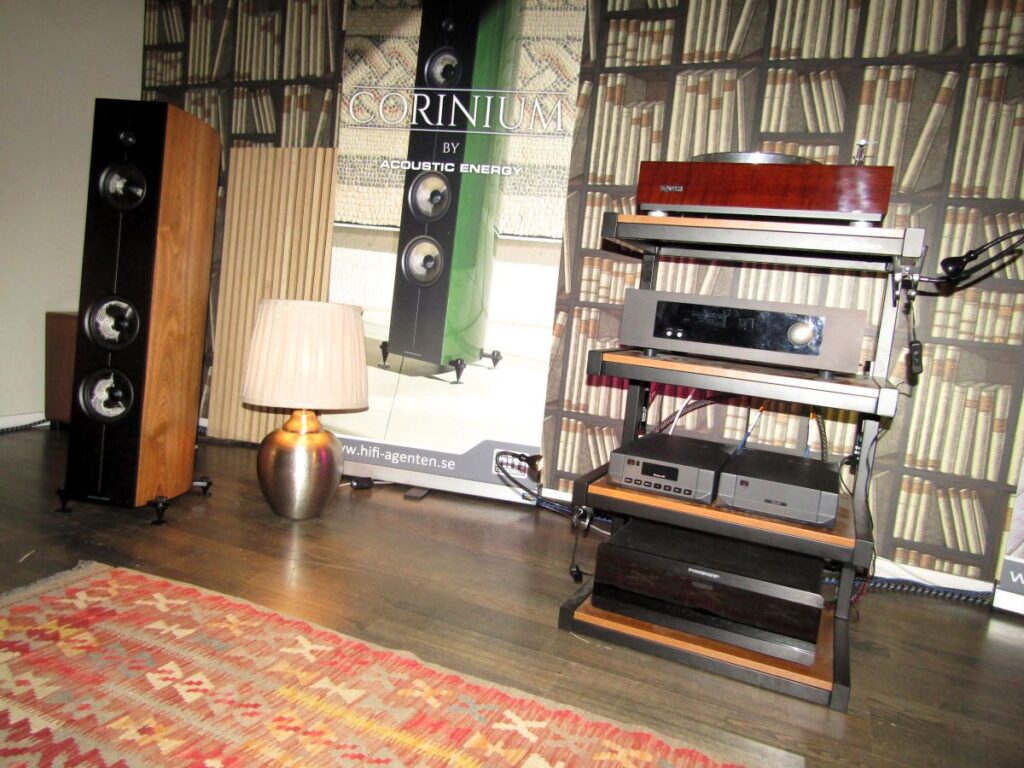
As always, Septon’s room was packed with top notch equipment: Sonus Faber’s grand Amati G5s, Nordost’s most expensive cables and best Rotel Michi series electronics that money can buy. But it will not help if the room constantly brings up strong bass resonances to the fore (at least where I sat). An eccentric Swedish choral recording managed somehow to sound great, but more bass-heavy music made the listener soon make a polite exit. Pity.
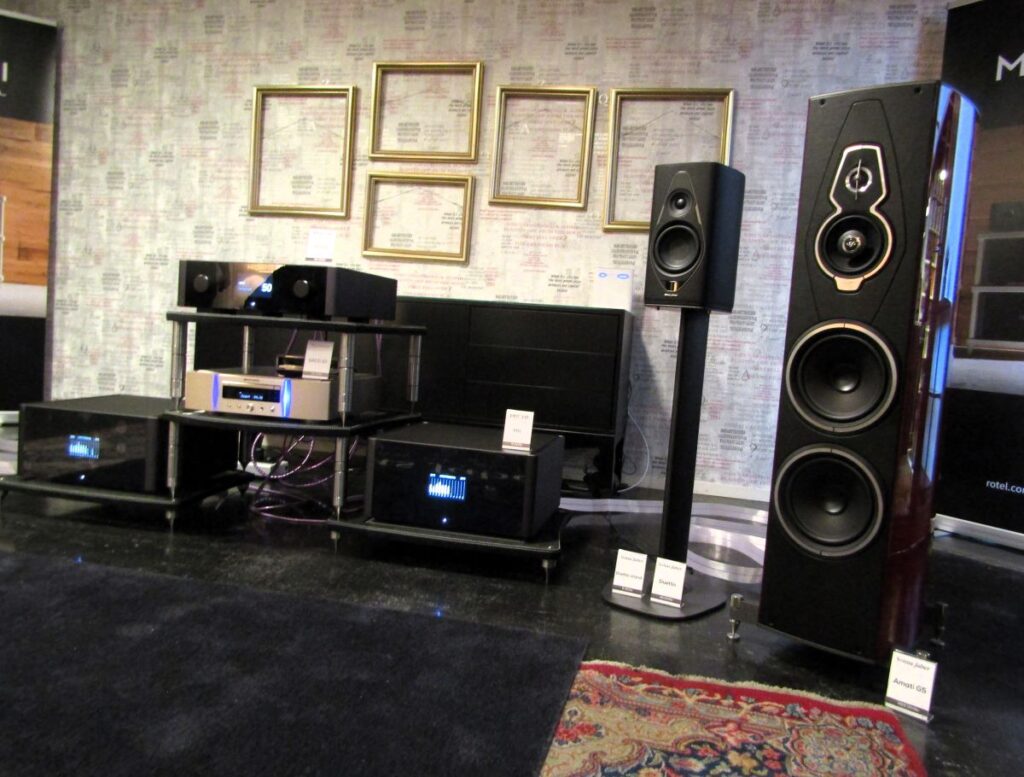
This year Technics had retreated to a rather small room, but survived with the SB-G90M2 speakers, SU-R1000 amp, and SU-GX70 amp as a streamer/preamplifier via pre-out. Turntable SL-1200R2.
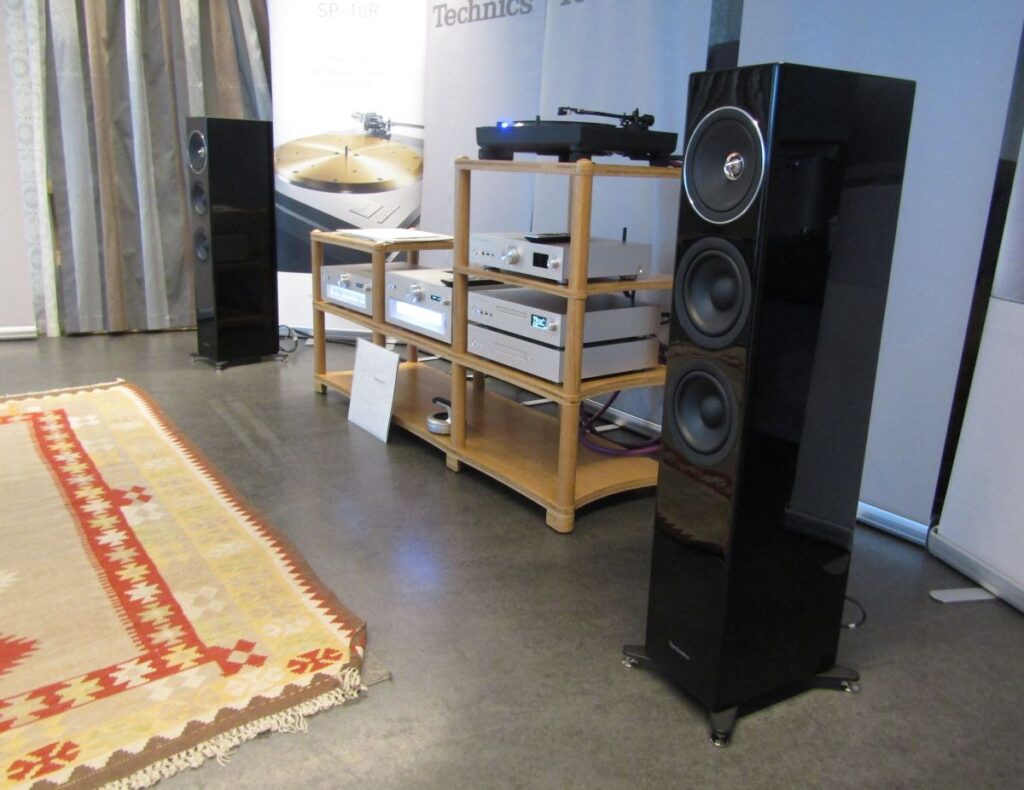
SOME NEW SPEAKERS
Digitalbild run side by side two relatively new speaker models: Rega’s Aya and KEF R7 Meta. The former was connected to Rega’s electronics, the latter newish Elektrokompaniet. The Rega system had some bass issues, but otherwise produced a decent likable sound. The sound of the KEF/Elektrokompaniet combo was perhaps a step more advanced tonally. Both systems had good synergy with a fairly good price/quality ratio.
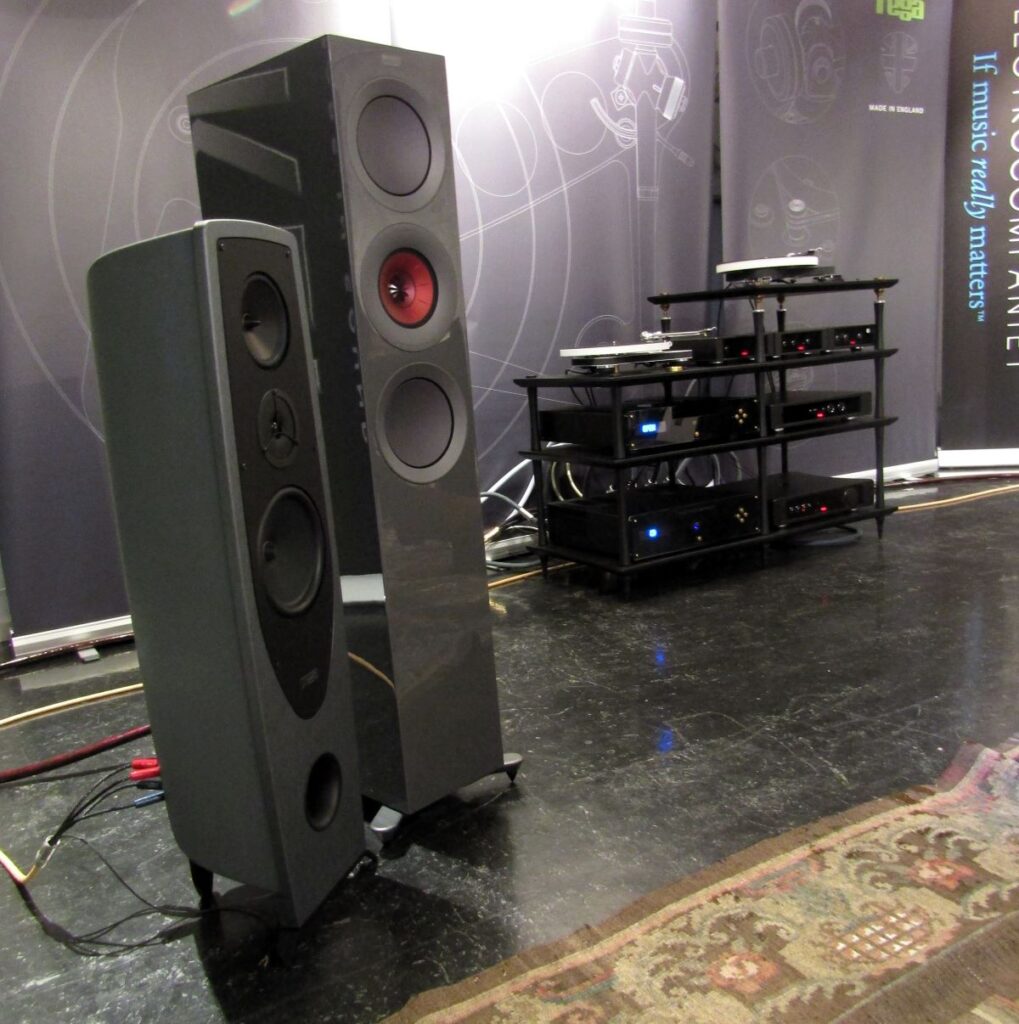
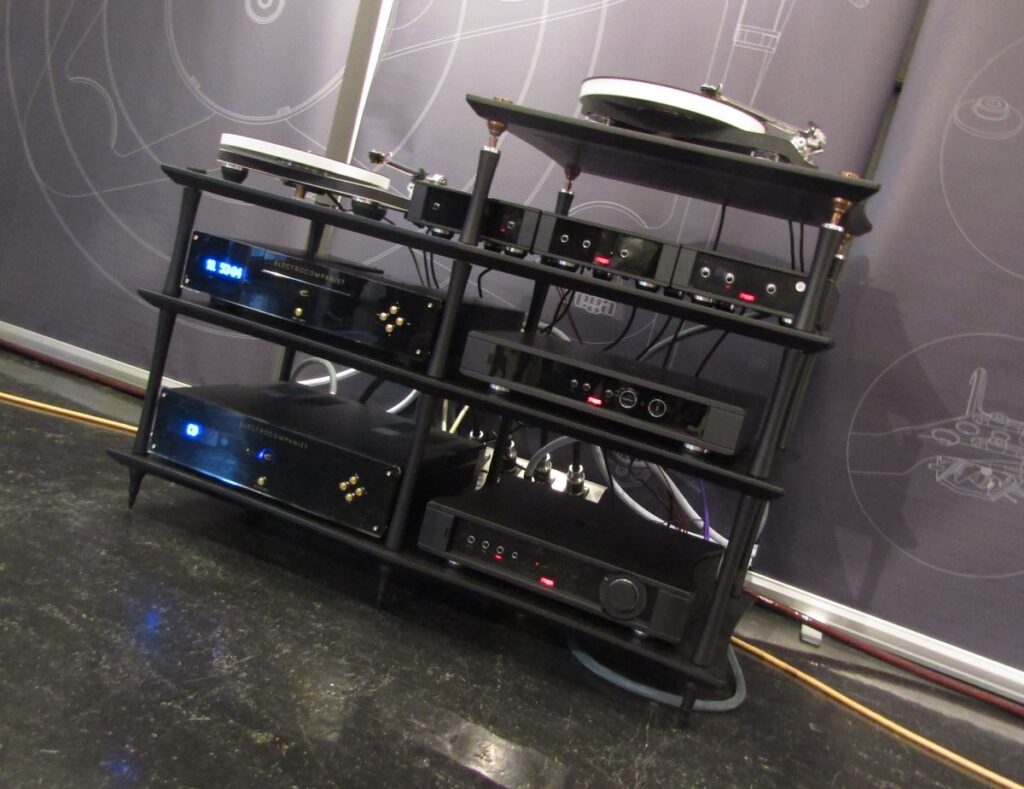
The third speaker novelty was demoed in Transient Designe’s room: Epos ES-7N. Karl-Heinz Fink, who bought Epos in 2020 from Michael Creek, and who knows the British brands like his pockets (including Robin Marshall, the founder of Epos in 1983). The first FinkTeam-Epos was Epos ES14, but since purists were not unreservedly unanimous about the end result, and because the speaker was too big for a book shelf, the new Epos ES-7N was designed that has no obvious connection to original Epos models. Epos ES28 floorstander will be published at the Munich Highend Show in May.
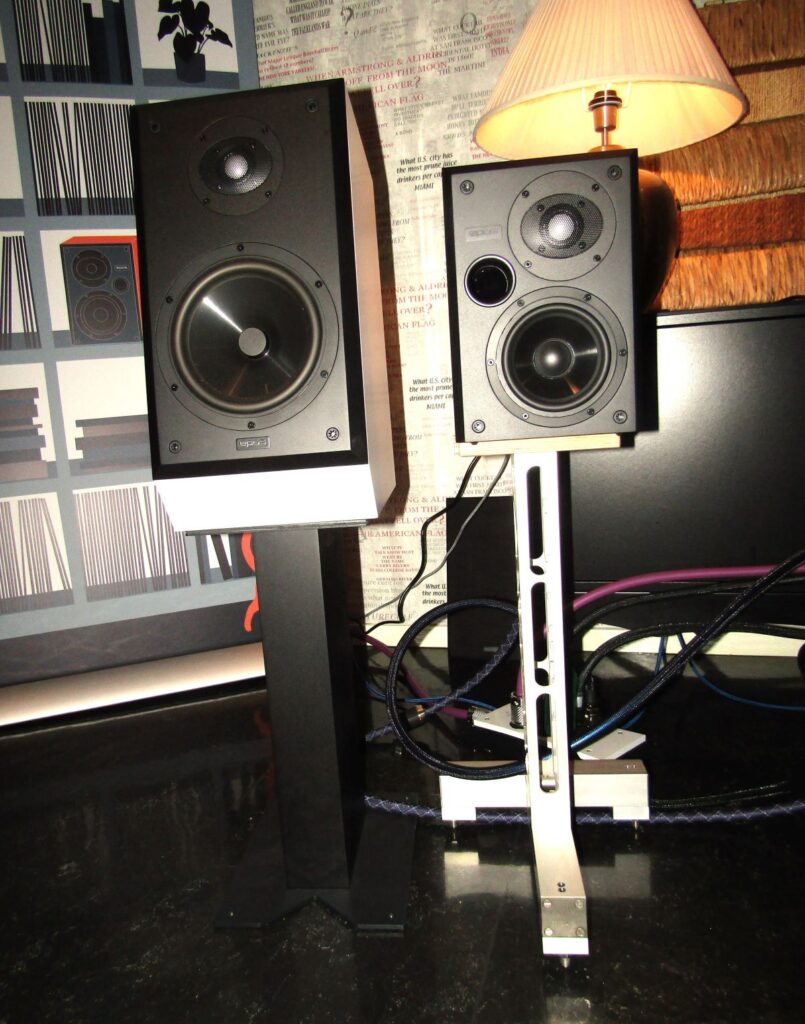
SOME NEW DACS
Regal Audio’s Anders Hansson is known for his Zero Loss technology. The technology applies especially to cables and the internal wiring of devices, but at the fair, Regal demoed its own brand new DAC, where Zero technology is fully applied to circuit boards. The DAC101 is a proprietary R2R-DAC with advanced PLL clocks (jitter <1ps), two 20-bit DA converters and 2 × 4 Farad supercapacitors feeding the critical analog stages.
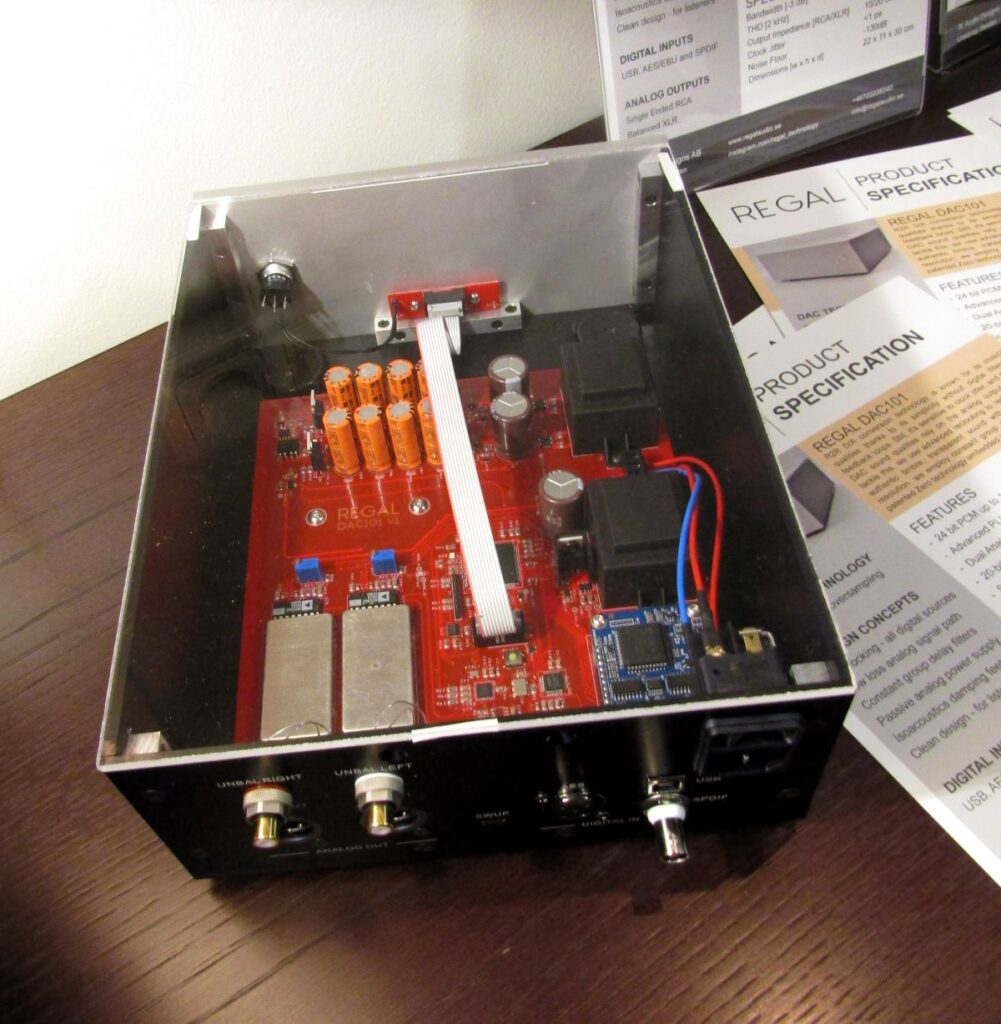
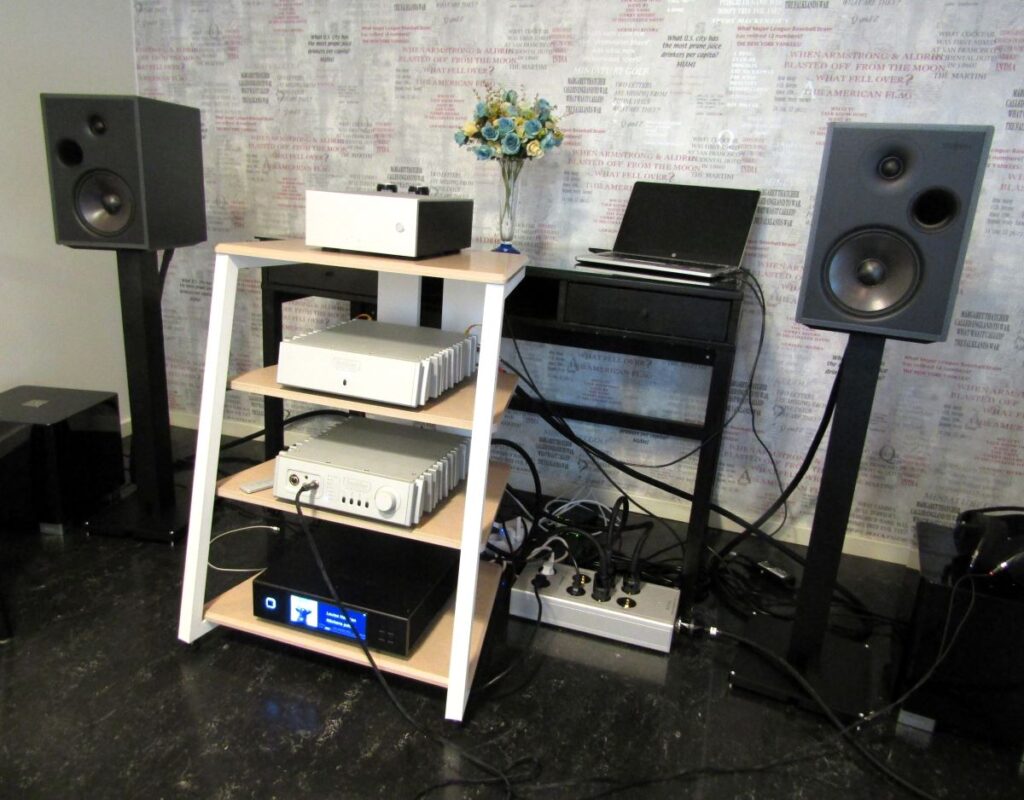
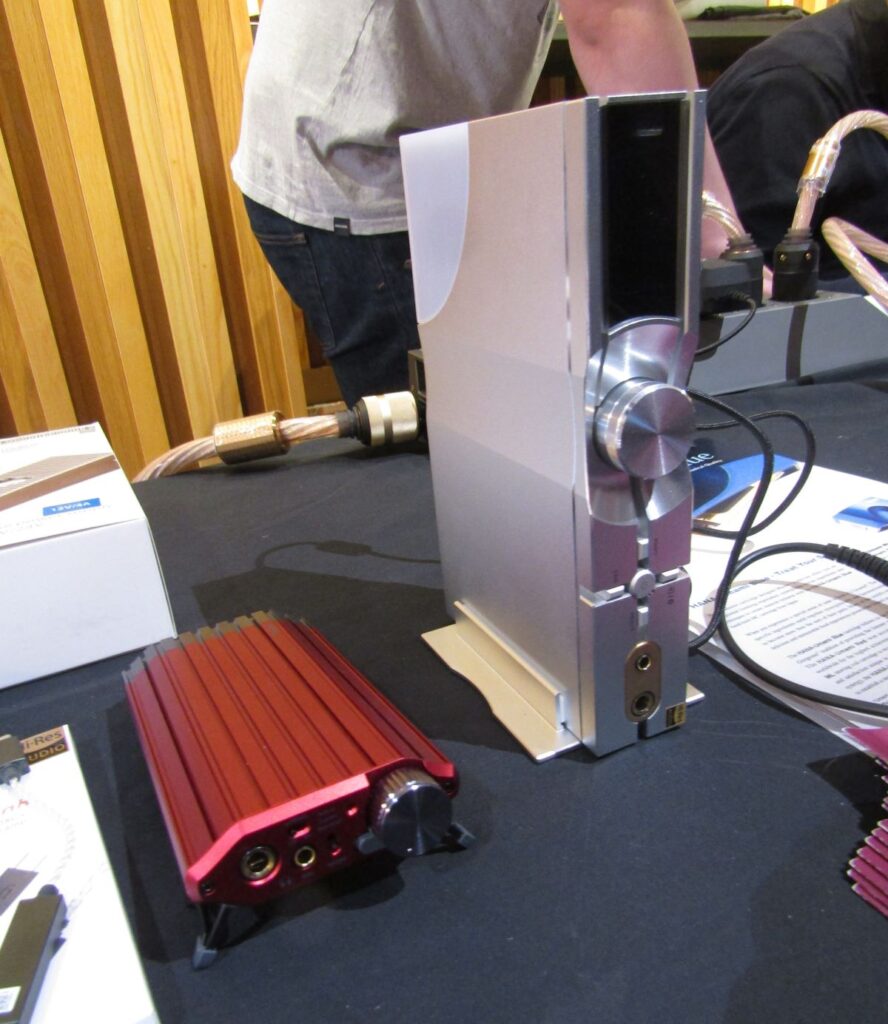
SHOOTOUTS
One of the traditions of the Stockholm Highend Show is open demos, where the public decides between two or three options. One such comparison was offered by Instereo. In it, Neat’s flagship Ultimatum XL6 speakers were first driven by Naim’s NAP 250 stereo power amp, then by Naim’s NAP 350 mono blocks, and finally adding the NPX 300 power supply to the chain. The source/preamp came, naturally, from Naim, and sample music was Paul Simon’s sweet Fifty ways to leave your lover. I honestly don’t know what happened (in the XL6 two isobaric 168mm woofers produce sound through a port in the bottom), but the difference between stereo and mono power amps was confusing. With the latter, the whole bottom register of the music seemed to come alive again, and even the tonal character of the song changed. Simply unexpected. Jaw-dropping!
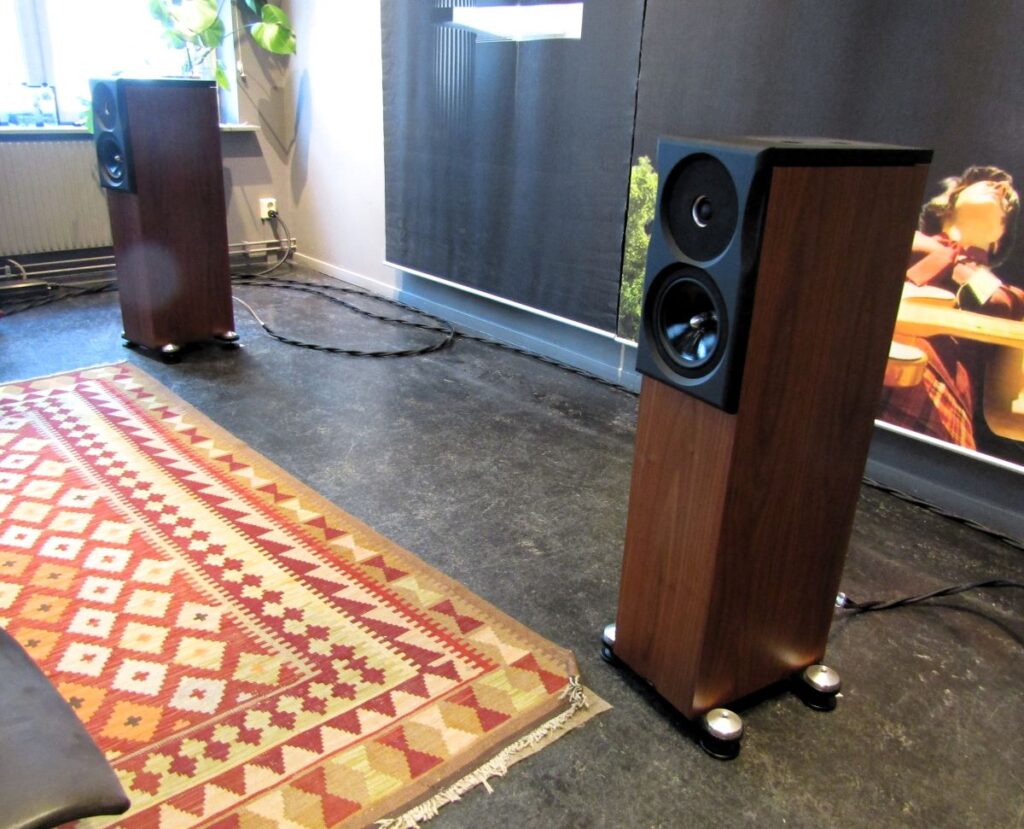
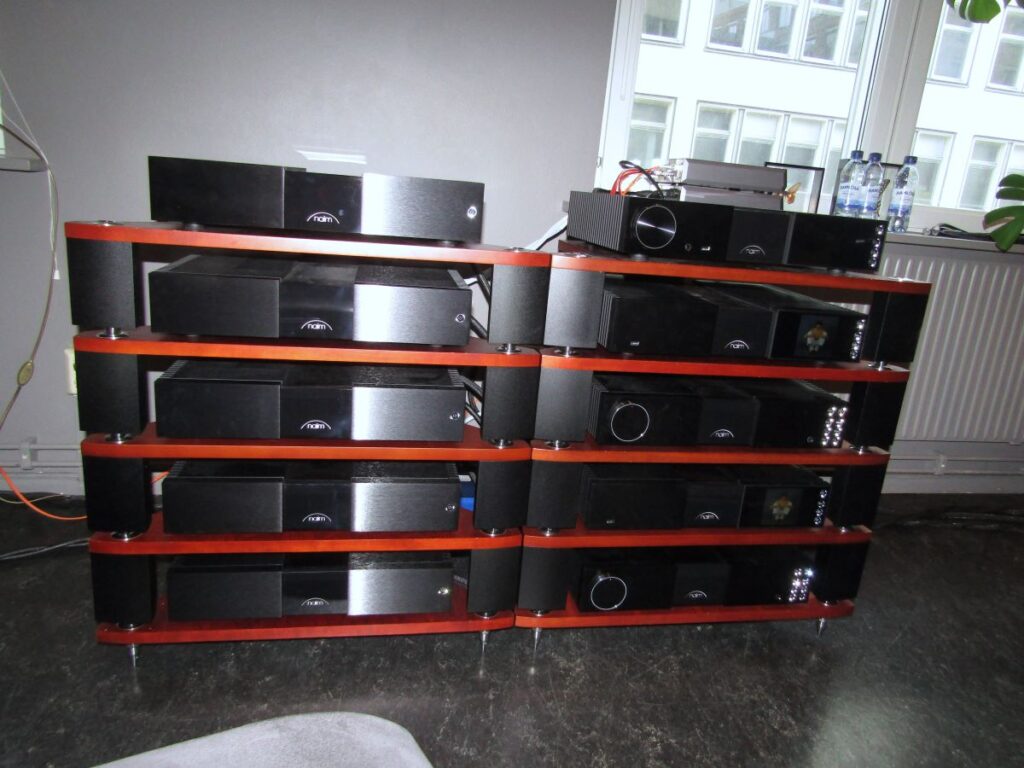
In Hifi Klubben’s demo, Tidal’s CD-level stream fought against a CD reproduced on Hegel’s new Viking CD player. The test CD was something by Robbie Williams, and the audience was free to choose a track from it. The speakers were Dali’s mighty 4.5-way Epikore 11s, and the amplifier Hegel’s streaming H600. The consensus of the large audience appeared to be that the music sounded better from the CD. According to Hegel, the reason was that the Viking CD player was designed from start to finish only for native 16/44.1 CD playback.
